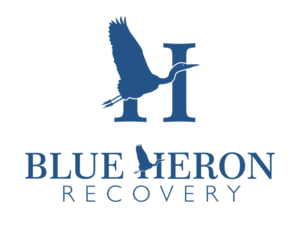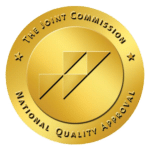Watching a loved one struggle with addiction can be heartbreaking. You may feel powerless, unsure of what to do, and scared for their future. The good news is that help is available, and you can take steps today to guide them toward recovery. Encouraging someone to enter rehab isn’t always easy, but with the right approach, you can increase the chances of them accepting help.
At Blue Heron Recovery, one of the top rehab centers in San Antonio, TX, we understand how difficult this process can be. In this guide, we’ll walk you through the steps to get your loved one into drug rehab and on the path to healing.
Steps To Take to Get Your Loved One Help
To provide yourself with the best chance of getting your loved one the help they need, consider doing the following.
Educate Yourself About Addiction and Treatment Options
Before approaching your loved one, it’s important to understand addiction as a disease. Many people mistakenly believe that addiction is a choice or a lack of willpower. In reality, it’s a complex condition that changes the brain and requires professional treatment.
Research different types of programs offered by rehab centers in San Antonio, TX, such as:
- Detox programs: Help manage withdrawal symptoms safely.
- Inpatient rehab: Provides 24/7 care in a structured environment.
- Outpatient rehab: Allows individuals to receive treatment while living at home.
- Dual diagnosis programs: Treats both addiction and mental health conditions.
Having knowledge about available options will help you guide your loved one toward the best solution for their situation.
Recognize the Signs That Rehab Is Needed
Many people with substance abuse issues deny they have a problem. It’s important to recognize when professional help is necessary. Some common signs that indicate your loved one may need rehab include:
- Frequent mood swings and personality changes
- Neglecting responsibilities at work, school, or home
- Physical signs like weight loss, poor hygiene, or tremors
- Secretive behavior and lying about drug use
- Financial or legal troubles related to substance abuse
If you notice these red flags, it’s time to start looking for rehab centers in San Antonio, TX, that can provide the necessary treatment.
Have an Open and Supportive Conversation
Approaching your loved one about rehab requires careful planning. The goal is to express concern without causing them to shut down or become defensive. Here are some tips for a productive conversation:
- Choose a calm, private setting where they feel safe.
- Use compassionate language instead of blame or judgment.
- Share specific examples of how addiction has impacted their life.
- Let them know you care about their well-being and want to help.
- Offer solutions, such as recommending trusted rehab centers in San Antonio, TX.
Avoid ultimatums or aggressive language, as this can push them further away. Instead, focus on love, support, and hope for recovery.
Consider an Intervention
If your loved one refuses help or is in denial, an intervention may be necessary. An intervention is a structured meeting where friends and family come together to encourage the person to seek treatment.
To make an intervention successful:
- Plan ahead and choose a professional interventionist if needed.
- Have each person share how addiction has affected them.
- Present clear treatment options, such as rehab centers in San Antonio, TX.
- Stay united as a group and set boundaries if they refuse treatment.
Interventions can be highly effective when done correctly, giving your loved one a wake-up call about the impact of their addiction.

Help Them Overcome Barriers to Treatment
Many people resist rehab due to fears or obstacles. Common concerns include:
- Fear of withdrawal: Reassure them that medical detox can make withdrawal safer and more comfortable.
- Financial worries: Many rehab centers in San Antonio, TX, accept insurance or offer payment plans.
- Work or family obligations: Help them see that taking time for treatment is necessary for a better future.
By addressing these concerns with compassion, you can help remove roadblocks that may prevent them from saying yes to rehab.
Choose the Right Rehab Center
Not all rehab programs are the same, so finding the right fit is essential. When researching rehab centers in San Antonio, TX, consider the following:
- Accreditation and licensing: Ensure the facility meets high-quality standards.
- Treatment approach: Look for evidence-based therapies like cognitive behavioral therapy (CBT).
- Customized programs: Every person’s addiction is different, so individualized care is crucial.
- Aftercare support: Recovery doesn’t end after rehab, so ongoing support is vital.
At Blue Heron Recovery, we offer personalized treatment plans to meet the unique needs of each individual.
Offer Emotional Support Throughout the Process
Even if your loved one agrees to enter rehab, they will still need your support. Recovery is a lifelong journey, and having a strong support system makes a huge difference.
Ways to support them include:
- Visiting or calling regularly while they’re in treatment.
- Encouraging them to stay committed to their recovery plan.
- Attending family therapy sessions offered by rehab centers in San Antonio, TX.
- Learning about addiction and relapse prevention to better understand their challenges.
Let them know that you believe in them and that they are not alone in this fight.
Encourage Long-Term Recovery
Rehab is just the beginning. To maintain sobriety, individuals need ongoing care and support. After completing treatment at one of the rehab centers in San Antonio, TX, they may benefit from:
- Outpatient counseling
- Support groups like Alcoholics Anonymous (AA) or Narcotics Anonymous (NA)
- A sober living environment
- Healthy lifestyle changes like exercise and mindfulness
Encouraging long-term commitment to recovery helps prevent relapse and ensures a healthier future.
Contact Us Today
If your loved one is struggling with addiction, don’t wait to take action—the right support can make all the difference. Blue Heron Recovery is one of the leading rehab centers in San Antonio, TX, offering compassionate and effective treatment options to help individuals reclaim their lives. Our team is here to guide you every step of the way, from the first call to long-term recovery. You’re not alone in this—reach out today at (210) 588-0508 to get the support and guidance you need.






